Ashley: Joining me today is Dr. Alison Nerenberg. She is a wife, mother educator, public speaker, licensed psychologist and author of No Perfect Love: Shattering the Illusion of Flawless Relationships. Thank you so much for joining me today.
Alyson: Oh, I’m very happy to be here. Thanks.
Ashley: Can you tell us a little bit about your book?
Alyson: Sure. So I wrote a book. No, perfect love shattering the illusion of flawless relationships because I realized we all are under so much pressure to make our relationships look perfect in our world of: Instagram and Facebook. Where everybody seems to be living perfectly flawless lives. I wanted to make something much more real to normalize that we all have struggles in our relationships and it’s how we handle them.

Ashley: I love that you talk about the fact that we should be sort of just good enough, not striving for this perfection or this false idea of what our relationship should look like from the outside.
Alyson: You got it. There’s so much pressure on us to look perfect, to dress our kids perfectly, to have the ideal career. You look at Instagram and nobody even has a flaw. I wanted to take some of the pressure off of us and realize that being good enough is okay.
Ashley: I think we get trapped, like you said, in the flawlessness of social media and the perception of what our relationships should be. We really forget that people aren’t necessarily putting their real lives out there. We’re really just seeing such a snippet of an edited version of what people want us to see that we really do need to remember that, that isn’t real.
Alyson: Nobody’s putting their sad moments on Facebook or Instagram. They’re putting the happy moments where everything looks flawless.
Ashley: How do you think that we switched that mindset for people more into more of a realistic version of what relationships should be?
Alyson: Well, part of it is really giving ourselves permission to be authentic and genuine when somebody asks us how we’re doing to give them an honest answer. Therapy is becoming much more mainstream now, so people are coming in with problems. People are talking about not just their perfect lives, but what’s really going on.
Ashley: I think that we really do want that authentic relationship building. I do think it’s almost so difficult and I’m sure it really is to blame in some cases for technology. In some ways, maybe the pandemic with us being so divided for the last three years of even how to remember to be like that, to have a conversation; how to, I dunno, function towards other people.
Alyson: I’m seeing so many people are lonely living isolated lives that are anxious, who, with dating apps, where everything has to look perfect, where there’s pressure on us, all that we shouldn’t be struggling. And then you feel less than if you are. Depression and anxiety have never been higher. People are really feeling isolated and alone.
Ashley: It is really alarming. If you will look at, like 20, 30 years ago, the level of anxiety and depression, it’s so hard to know whether it just wasn’t talked about or wasn’t diagnosed as much. Or whether we really do just have an overwhelming amount now.
Alyson: I think it’s a combination of both. I think as our expectations have risen there’s been more pressure on us. And so there is a higher level of suicide rates. There is a higher level of depression. I talked with a woman today who lost her son to suicide just a couple of weeks ago. And. Devastating. And this is a kid that everything looked perfect. You know, he was a star athlete in school, a star student, and I just heard the pain in her voice. I feel like we’ve got to really parent our kids differently. Instead of just honoring the star athletes or the star students, we need to really build up our kids and help them develop self-esteem for who they are, not just what they accomplish.
Lawnmower Parenting
Ashley: Potentially the rise of helicopter parents or parents sort of getting in their kid’s way of, developing those skills for themselves is something also that is a major problem that we see today that we maybe didn’t see in previous generations.
Alyson: I completely agree. I heard a new term. It’s called the lawnmower parent. Not only are they observing their kids, but they will knock down anybody and anything that interferes with their child, getting the achievements that they want their child to have.
Ashley: I’ve never heard that expression, but it definitely, I can see just with my daughter’s friend groups, even I can see that there’s parents like that. We really have to step back and let kids be kids because they’re not going to be able to function. Like we’re not going to have doctors. We’re not going to have lawyers. We’re not going to have psychologists. Like, we’re just going to have a bunch of kids that aren’t able to leave our house and become young adults.
Alyson: It’s not good for our kids. It’s not good for ourselves. As parents either know that pressure to compete with other parents and as the bar gets risen higher and higher for getting your kid into college, there’s just more and more expectations. You can’t just join a club. You now have to be president of the club. You can’t join a soccer team. You have to be in the travel soccer team.
Ashley: A hundred percent. I think a lot of the times parents just need to understand that our kids are not a version of ourselves. They’re not an extension of us. They really are their own people that we have to learn who they are and build that relationship so that we. Don’t have the expectation that if you are just a dancer in the back and having a great time that that’s not good enough, or that’s not perfect enough that I can get the accolades of being the parent of this shining star versus this kid. That’s just doing what they love and enjoying their life and learning as they go.
Alyson: You got it. We need to focus on what really matters like building character. As opposed to somebody who everything comes so easily to.
Ashley: or what would happen if we moved out of the way and things, didn’t happen as easy for them. I would imagine a lot of these kids with the lawnmower parents, the helicopter parents, when those parents pass, what happens to those kids?
Alyson: Yeah. I remember when my daughter was going through school, there were parents who would complain about if their child wasn’t in the right position in the dance class. I mean, in the scheme of a life, what does that even matter?
Ashley: Exactly. When you look back in 30 years, you’re not like, oh, I remember I was third place. It’s oh, I remember having so much fun being backstage with my friends, or I remember how fun it was and the excitement of being on stage and all of the different things. Now, I know technology plays a big part in this. Do you think that there’s a way for us to sort of break away from the mind shift of not having to perform, just so that we get the likes and the accolades and the attention on social media and getting back to authentic-ness?
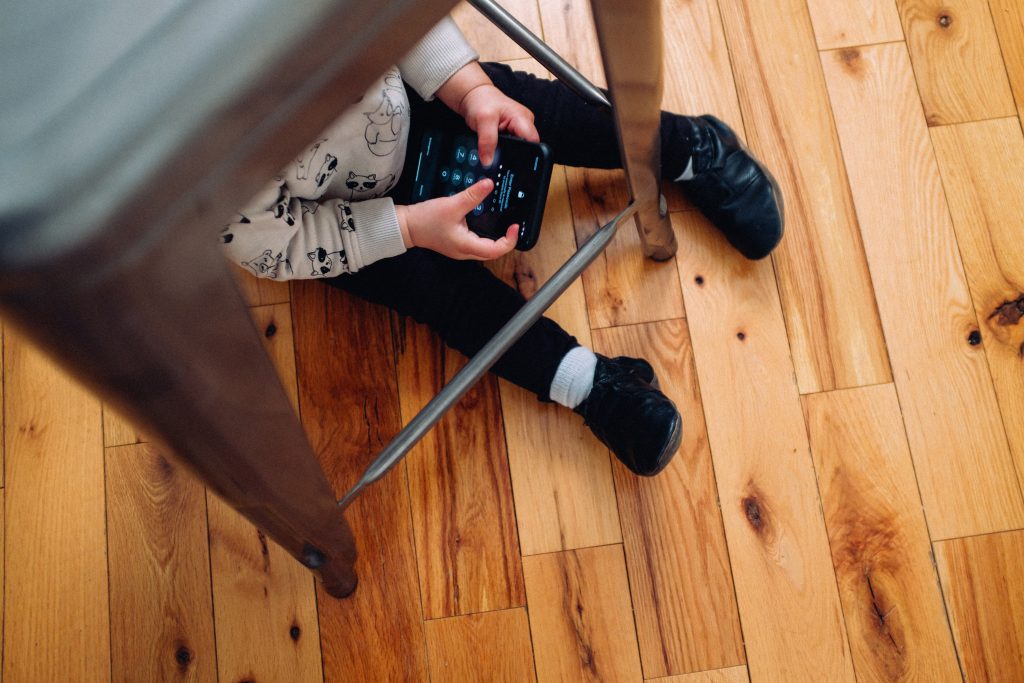
Photo by charlesdeluvio on Unsplash
Put That Cellphone Down
Alyson: You know, I’m in such a catch 22 right now, because I’m really talking about being present and how important it is to be present and not always be on your phone. But yet I wrote a book and all of a sudden, the editors and my PR team says, oh, go on social media and promote it. So I’m kind of like, all right, I don’t want to be a hypocrite. I want to be authentic. I’m trying to put myself out there, but boy, it feels uncomfortable sometimes. I think about with kids, you know what I’ve heard my son even say at our dinner table to my husband, “put down your phone Dad.” We all want to be present for our kids. Our kids need to know that we have a sparkle in our eye when they walk into the room and that we’re not too busy looking at other things.
Ashley: It is really hard sometimes to put the phone down because it has become this relationships, if you want to connect with people, if you do want to promote something, if you do want to check the news, the weather, whichever it is really hard. Just put it down and remember that it’s okay. And that life doesn’t stop.
Alyson: Right? It’s it’s not just our kids. It’s ourselves and definitely.
Ashley: How do we create more practical boundaries with our family or with our friends in just these relationships that we’re trying to move towards being more authentic?
Alyson: Well, it can be as easy as saying, okay, we’re not going to look at our phones during dinner, or we’ll only do it for an hour a day, or that let’s just have a conversation and really planning to. Be present with our children for being present with ourselves. You know, so often a husband will be not focused when his wife walks in the room, he’ll be watching the game or not present on his computer. And it’s so important that we all allow our eyes to sparkle. When we look at each other, let our face light up and really be present for a moment just to listen to what the other person is saying.
Presence Is Respect
Ashley: I think that’s really great to remember. I think respecting other people’s, I guess, version of what being present is sometimes when we first walk in the door, I could imagine just carrying sort of the day on you that you can’t necessarily shift from say work brain to home brain. So I guess it would be also remembering that maybe somebody needs to go take 10 minutes and have a quiet time or finish scrolling on their phone for that 10 minutes so that they can successfully put it away and things like that.
Alyson: So for me, what I usually do, even when I come home is I changed my clothes because I still work in an office and I try to dress professionally as a therapist. But when I come home, I want to put on my sweats. I want to put on my t-shirt. I want to kind of let the day go by. I listen to music in the car to let it go and to let all of that heaviness of listening to people’s problems, go and really focus on being as present as I can.
Ashley: Well, for sure, especially having a position like you have where you’re listening to potentially the most devastating things that could happen to somebody mixed with maybe also lighter things that it must be a hard shift at the end of the day to kind of switch
Alyson: I do what I can. I use these rituals, whether it’s listening to music in the car on the way home, whether it’s changing my clothes, whether it’s lighting a candle, I do whatever I can to kind of let the day go off my shoulders and be as present,
Ashley: which is great. In your book, you talk about the HALT method. Can you explain what that is?
HALT Method, What Is It?
Alyson: So what I talk about and I got this from the recovery room is from 12 step communities, but it’s called when you’re hungry, angry, lonely, tired, we’re more at risk to have worse boundaries. So if you’re hungry, Before you set a boundary with somebody, or before you talk to somebody about what you need or have a difficult conversation, it’s important to make sure you’re in a good frame of mind. So if you’re hungry, make sure you eat before you have a difficult conversation where if you’re angry, you make sure you take a few deep breaths and you journal if possible, if you’re lonely, it’s, what’s really going on. It’s kind of checking into yourself and not having a difficult conversation when you’re tired it’s really just a form of self care. Make sure you’re taking care of your own needs before you’re having a tough conversation or trying to let somebody else know what you want.
Ashley: So say you have those tools and, you know, I need to feed myself sleep, have a minute, not want to be lonely if the other person that you’re trying to communicate with, maybe doesn’t have the same boundaries or doesn’t have the same knowledge or tools. What would you suggest when you’re trying to communicate completely differently with somebody like that?
Alyson: It’s hard sometimes, especially when you’re dealing with somebody , who doesn’t listen to you or somebody who has narcissistic personality disorder, who is really into their own needs. So it’s hard. So I really talk about taking a couple of deep breaths. And for me, when I’m. Spending a lot of time with family. I just came back from being down the shore over the Memorial day weekend, and I have this great dog Rosie. When I feel like it could be heated or too much family time, I can take my dog for a walk, catch my breath, and then come on back,
Ashley: which is always great to kind of have that out.
Alyson: Yes. Yes. I think it’s important to take care of your own needs. And if you know, you really want to have a difficult conversation, like catch your breath, get have a cold drink of water do everything you can to be present. I also talk to people about bookending they’re difficult conversations, which means if you know, you’re going to be in a situation, have to have a tough conversation, call a friend for support before and after I call it bookending
Ashley: that’s great advice too,
Alyson: Yes. and give you support and tell you that they see you as great, regardless of how the conversation.
Ashley: Exactly. Now you had also mentioned a narcissist. Do you find that that term is more prevalent today maybe because of social media and technology, or do you think that’s also more that we’ve always had narcissists and it’s more the education piece that’s making the conversation about them more topical?
Alyson: Again, I think both perspectives are right. I think it’s on trend right now to use the term narcissist, but I think it’s really when somebody is very into his or her own needs and very lacks empathy for you, or is really very entitled. Doesn’t think the rules apply just a difficult personality to deal with.
Ashley: Now, like you said, we do throw the term around a lot. How would somebody. Sort of differentiate somebody who’s maybe just like selfish and full of themselves to somebody who actually has a narcissistic personality disorder.
Alyson: I think we all are on the spectrum at some point, we’re all on a continuum. I think as we were talking about our culture, really Permeates narcissism. It really is encouraging it by saying, you know, post your pictures immediately and right after you do anything exciting and you know, you have to look good. So I think there’s a part of our culture. That’s really really encouraging that. But I think the extreme ends of the spectrum is when somebody really is caught in his own needs and doesn’t listen to you and doesn’t have empathy and is very entitled and grandiose, and, has this sense of entitlement that rules don’t apply. I can do whatever I want,
Ashley: which is really hard. I would imagine being in a relationship with a narcissist and actually ending that relationship or communicating within that relationship.
Alyson: Yeah.
Setting Boundaries Is Important
Ashley: What other ways can we create practical boundaries in a relationship?
Alyson: So there’s lots of ways of setting boundaries. I’m big on the keeping your visits short and sweet, you know, so not. if your involved with a narcissistic personality person. You don’t want to spend too much time alone with this person, whether it’s a family member, whether it’s a friend it’s kind of making sure that if you’re feeling disrespected, you leave the conversation or you say, Hey, I don’t like the tone of voice you’re using and really stick up for yourself. That’s that setting boundaries of how you want to be treated.
Ashley: Absolutely. I think it’s also important to think about that in the same sense too, that it’s not always romantic partners. I think sometimes we do forget that we can be involved in these relationships with coworkers or family members and that we may not spot the personality. The same way.
Alyson: So if your boss is narcissistic, it’s really important to safeguard your own time and that could look like, you know, putting a disclaimer on your phone that saying it’s the weekend or holiday weekend. I will answer my emails. When I return on Tuesday, it’s basically protecting your time so that you aren’t feeling depleted.
Ashley: I guess that would be a little bit harder with family members, depending on how close you are with that person as well.
Alyson: So what I would recommend again, keeping it the visit short and sweet, instead of maybe spending a week with toxic family members, I would recommend maybe make it a weekend where if the person lives close by you, instead of sleeping overnight, maybe just going for dinner so that you, I call it leaving on a high note. So that positive experience.
Ashley: Which is really great advice too, because I think a lot of the times we get sucked into the, oh, we should spend time with this person or we should do whichever. It really is important to remember that we have to take care of ourselves first
Alyson: and that you shouldn’t have the confrontation with the person. If you’re hungry, angry, lonely, or tired, and that narcissists have a hard time listening to your perspective.
Ashley: I would imagine that they don’t have the ability to care , if they lack empathy, that it really would be what works for them or what’s all about them. I know from my personal experience, I find that they’re like energy vampires like that. They just want to suck everything out of the room and it becomes sort of all about themselves.
Alyson: Yes. Part of setting boundaries could say, Hey, listen, don’t call me after a certain time at night, as opposed to, you know, I remember having a person in my life who was narcissistic and I’d say, all right, don’t call me past 11 and midnight, the phone would ring. It was just disrespecting of my time.
Ashley: I think almost intentionally, they look for ways to push buttons or break boundaries.
Alyson: Or their needs were just more important.
Ashley: Is there a way, do you think say for single people that are still swiping through those dating apps are there ways to spot narcissistic personalities or toxic behavior without fully being in a relationship with that person?
Alyson: Yes. Usually a narcissist will have this great picture of himself or herself up and it will be. They’ll keep it very superficial. It’ll all be about them, the communication. Very superficial and in a way the dating apps are like a narcissist playground. I mean, there’s so many people and if it becomes too much work, they can just go swipe and find another person to really prey upon.
Ashley: Oh, it really is. It’s sort of this awful, it’s like online shopping but for humans that it’s like, oh, I don’t like that dog. I’m going to swipe. Oh, is that you or is that your friend? Like who am I actually talking to? Or am I looking at a picture of somebody from 10 years ago? And what’s actually going to show up exactly. Now you also mentioned in your book that there’s some unconscious questions that we ask of each other. Can you explain what some of those would be?
Alyson: Sure. So I basically got these questions based on Maya Angelo’s work. And what they really talk about is that what everybody looks for whether it be your child, whether it be your partner, whether it be the woman that works at the supermarket. These are four questions that everybody’s unconsciously asking each other. The first question is, do you see me the second is, do you care that I am here? Am I enough for you? Where do you wish that I was better in some way? And the fourth is, can I tell that I’m special, by the way you look at me
Ashley: You can just feel the energy shift with those questions.
Alyson: It’s so hard because you know, when a child walks in the room, she wants to know that our parents and I keep using this expression, but. Eyes are lighting up and that her face is sparkly and that she’s happy that the child is there. But so often as parents we’re caught up with, oh my goodness, my daughter’s hair is a mess. Let me fix that. Or let me straighten my son’s shirt instead of really just taking in their beautiful presences and being there.
Ashley: I think a lot of the times you just take it for granted in the moment of like, just centering yourself and actually coming back to the present instead of sort of having that like a monkey brain where you’re focused on 10 different things at once instead of just your kids. It’s so hard because I know like with the expression is so true that the days are long, but the years are short, but it’s like all of a sudden, those tiny little cute faces that are so excited to see you when you come home. All of a sudden now we’re like rushing out the door to go be with their friends . So it is really important to kind of create that bond and that relationship while they’re still little to be like your, my favorite thing in the whole entire world.
Alyson: And I still have that with my older daughters who were in college whenever they come home, I’m like, oh, they know I’ll drop anything just for their attention.
Ashley: It is sort of funny because when they’re little, it’s not necessarily that they’re fighting for our attention, but it’s like they wanted so much more. And then when they’re older, it’s like, just pay attention to me. It’s like, you just switched roles.
Alyson: It’s like that old song. The cat’s in the cradle. Yes. Yeah. But it’s interesting. I think this whole problem of not being present is not just with our kids. It’s also with our partners. I mean, how often have we gone out to dinner and seen a couple that neither of them are even making eye contact. They’re just spending the whole time on their phones.
Ashley: I’ve seen couples where they’re literally texting each other. From the other side of the table where it’s like, just put them down just to have that conversation because it’s almost comical. Like I just, I couldn’t imagine. And being across from somebody and texting them, instead of taking the opportunity to have that conversation or to hold hands or to be in the moment.
Alyson: I remember my daughter had a friend who was quiet and socially awkward in some ways that she didn’t even know how to order a pizza. She was so used to doing everything on her phone or through an app. she wasn’t even able to make the small talk to order a pizza. It’s if you think about how we used to date, you know, back in my day, it was like when somebody wanted to ask a girl out here, they’d call and the family phone. They’d have to talk to the parents first and make small talk for a few minutes and then pick them up. They’d come to the door. It was like this whole, formal process as opposed to now. They can just say, What’s Up?
Ashley: It’s like the art of the awkward conversation. Like having to figure out what you’re going to talk to about that person. Like if you said something that you were like, oh my gosh, I can’t, that’s so embarrassing. I said that having to learn how to recover from it. I remember being on the phone with my friends or boyfriends for like two or three hours. Now my daughter, it’s almost insulting. If somebody phones it’s like, what am I supposed to say to you? Their conversations are so different and it really has shifted that it’s more like, oh, did he Snapchat me back? And she will almost have a temper tantrum. She’s 15 years old. If I make her go into the store to order food or to talk to people because they’re just not used to doing that anymore. Especially. I think over the last two years, that because they have been so isolated and not necessarily able to go out into the real world in the same way, I feel like those skillsets have kind of dissipated.
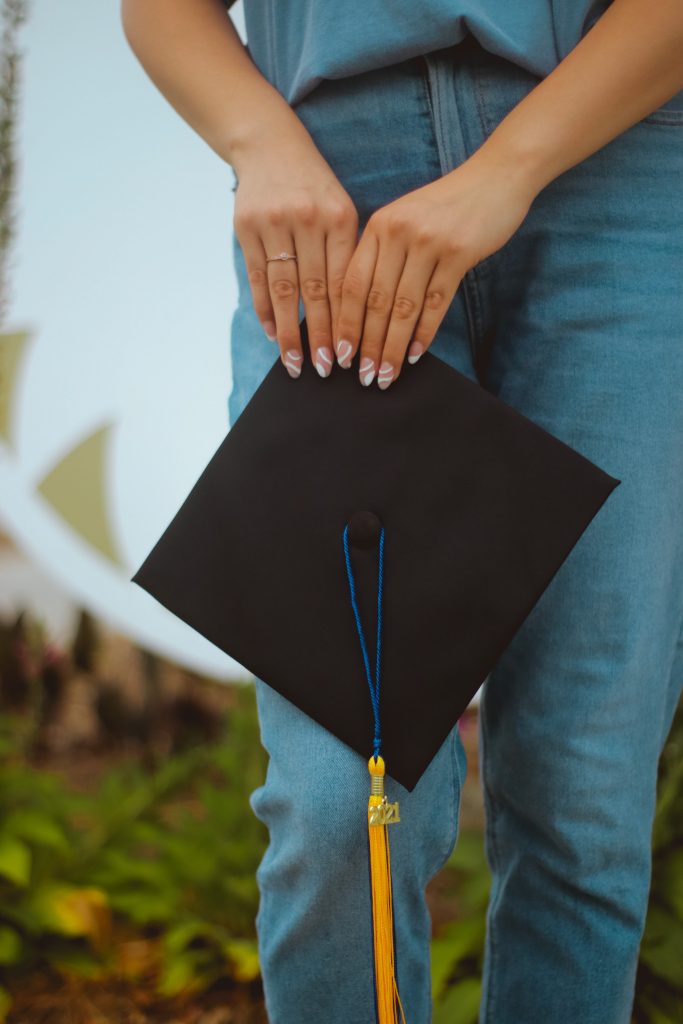
Photo by Sir Manuel on Unsplash
Alyson: it’s so hard. As a therapist, I had a boundary that I wasn’t working with kids because I had three of my own kids and I felt like I’m a much better with, once someone hits college or in their twenties and older and for midlife, but because of the pandemic. I just feel so bad for all these kids and you know, my own boundaries. I, all of a sudden started taking in college kids and started seeing them just cause I just felt there’s such a need for therapy for these college kids and who are really struggling and isolated and lonely.
Why I Opened The Door To College Kids
Ashley: Well, and I think that obviously like the topic of the pandemic and everybody was so worried about COVID, but I think the other pieces that were maybe just as dangerous really were the rising anxiety and depression and suicide rates, as well as drug overdoses.
Alyson: Yeah. It’s been really a tough time. It’s tough time for our young people to tough time for people who are dating on dating apps. And I mean, it’s just, it’s been hard. It’s hard for marriages. Eating disorders have been up. Addictions have been up,
Ashley: I just don’t know what the solution. Is for it. I do appreciate the fact that the mental health topics and sort of the stigma of it is becoming less. Oh my gosh. I can’t ask for help because people will think, da da ta da so I do like that the conversations are switching. I do wish that. In some cases, people were more willing to seek out help, maybe.
Alyson: You know, I love the fact that there are people like Harry styles and there’s people, even Bruce Springsteen talked about his depression and there’s a lot of people all through the media. Who’ve talked about the need for mental health. So the stigma has gone down, but what’s been hard. us therapists have been overwhelmed and overworked. Absolutely. Just today, somebody about an hour before our call actually came to my door of my office and just knocked and said, Hey, I called you this morning. You didn’t call me back. I want to introduce myself and it’s kind of like, wow, people are just so hungry for therapy. And my heartbroken. I said, I have an interview. I’ll talk to you afterwards, but I just felt so badly that it’s, there’s such a need for people to connect.
Ashley: It almost is like we need an emergency room, but just for mental health and not necessarily when you actually have to go to a hospital, but just to have. That connection or that ability, because there really is only so many hours in a day. I’m sure that it’s for your own mental wellbeing that it’s like you could only take on so much at one time as well.
Alyson: Well, I’ve been fortunate that I have several therapists working for me in my practice. So I refer to them. Until this pandemic, now nobody will take on anybody else. So I’m kind of begging people to take them on. I mean, it’s been really an overwhelming need for our mental health crisis. That’s going on.
Ashley: Which if nothing else maybe could be an inspiration to people that if they were looking to get into this field now would be the time to do it.
Alyson: I encourage every everybody. I mean, I think it’s so important. Both of my daughters have been psychology majors and I just was like, there is such a need for young people to join this field.
Ashley: I’m a big advocate for therapy. I also love the fact that even around self care and mental health, The stigma is changing, but to the point that people can look at for different techniques, whether that be like a different breath work or EFT or sensory deprivation tanks, or just different ways to help them actually bring themselves back to that place where they’re not hungry, they’re not angry. They’re not lonely. They’re not in sort of that head space that they can actually decompress and relax.
Alyson: Definitely sometimes I think exercise is the best therapy. Being able to exercise, being able to, you know, get a massage or take care of yourself or do breath work or really practice different ways of soothing yourself.
Ashley: Well, and I think sometimes exercise gets a bad rep because it’s like if we only focus on it for a physical. Outcome then it’s like, yes, you are potentially setting yourself up for failure. But when you really think about the fact that exercise or just moving your body or even just getting out in nature really can just bring yourself back to center and really do wonders for your mental health. Would benefit people to kind of have that. Shift in thinking about exercise
Alyson: completely. We are big hikers in my family, so we’re big on going out. We’d take the dog and we go for a hike whenever we can. And I treated myself during the pandemic to a Peloton. It was such a good move. I don’t know why it took me so long to do it because it, I guess the expense, but it was so worth it just to have somebody who’s positive and that I like what they say. I like the whole energy of being on a bike and hearing positive messages. It’s part of my mental health care.
Ashley: It’s just starting something new can be so challenging and overwhelming. So something like the Peloton it’s like the. Almost what seemed like a commitment, even though once you start enjoying it, it wouldn’t feel like that.
Alyson: I used to be somebody who went to spin classes. That was my outlet. I would do spin classes. I would do tennis. I’ve always been somebody who’s physically active, but I really don’t miss the gym since the pandemic, just having this Peloton, being able to do it at my own time. It’s been great. Also hiking outdoors or something about nature and being in nature that is healing for soul.
Ashley: It really is. I think they call it like nature bathing, but it’s being in the fresh air, being in the calmness, just that energy really, really can do wonders.
Alyson: I feel like for me, when I’m hearing problems throughout the day, anything I can do for my own self care so that I’m not feeling depleted is really important.
Ashley: Absolutely. It would be because you really, at the end of the day, you have to make sure that you are number one because you can’t pour from an empty cup. So if you don’t feel like you’re doing well, then you can’t really support your family. And then you can’t really funnel out to clients and things like that as well.
Alyson: That’s so important.
Ashley: Now, how would you, help people shift their mindset? So say they are in a relationship with somebody who is depleted or they’re in a relationship with somebody who’s narcissistic and they want to take a shift in that relationship. How would you encourage people to switch their mindset from say maybe the pain and the resentment to more forgiving and a healthy relationship going forward with that person?
Alyson: Well, you know, it’s such a great question. I think the first part is really forgiving yourself, forgiving yourself for putting up with too much and setting. All right. I want to set boundaries and change how I’m treated. And in that I’m going to start valuing myself. Then little things like that. We’ve already talked about like exercising and taking care of yourself is so important and realizing that you’re worth more. Then the way this person has been talking to you and the way you feel. So I, think even just journaling and doing deep breaths and realizing how do you feel when you’re with this person? Are you feeling belittled or are you feeling good about yourself?
Ashley: It really is so incredibly hard. I find to forgive yourself, or when you feel guilt about something to actually let that guilt go and not have it mean something about you.
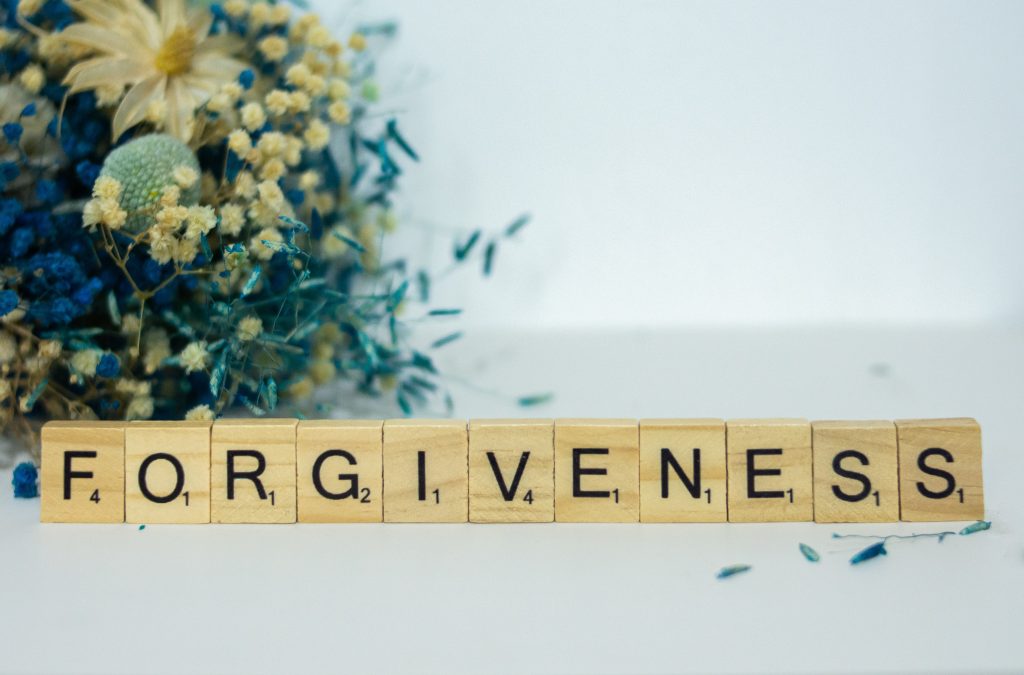
Photo by Alex Shute on Unsplash
Forgiveness Was The Hardest Chapter
Alyson: So for me in writing this book, the hardest chapter to write was the forgiveness chapter. I got a bunch of people to proofread my book. I got editors. I had a bunch of professionals giving me their opinion. This one in particular said, you’ve got to beef up your forgiveness chapter. I felt defensive and I thought, oh, it looks fine the way it is. And then I’m like, all right, I got to take in this feedback. I wondered, why was this hard? And I realized sometimes that forgiveness is hard for my patients. It’s hard for me to let go of it. If you hurt my kids, forget it. I’m mama bear, you know, but it’s letting go and forgiving ourselves is such a core part of that and realizing we did the best that we could in the moment.
Ashley: I think it’s so easy. In some ways, like obviously situationally based, but it’s so easy to forgive other people, but I find that with guilt and forgiveness for yourself, I find that it really goes back and correct me if I’m wrong, but really back to childhood, like there’s always some sort of root of this made me feel like that at that age and I never got over it. So then that feeling must make it mean something about myself, that it really. Funny in a not funny way, how we kind of carry that from whatever developmental stage that was to mean something about us at every age and not necessarily have the tools or the awareness to go back and be like, oh, I just need to forgive myself at six for it to be okay at 36 or whatever the age may be.
Alyson: So what I usually do with patients is I’ll ask them to bring in a picture of themselves when they were really hurting and whatever age, whether it would be six, whether it be 10 and to look into that child’s eyes and ask them, what does that child need to hear? Often we write a letter to that child. And for me, I still have that picture of myself. I think I had it myself at four that I just have this picture in my office to remind myself to be kind to her and I think it’s so important that we all hang a picture of ourself at a younger age and remember that to be kind to that inner child,
Ashley: Which is such a powerful exercise, because it’s like the way that your internal voice potentially talks about yourself. Like today, you wouldn’t go say that to a four year old or you wouldn’t say that to a small child. So it’s really, why do you feel okay to say it to yourself at this age.
Alyson: Yeah. I actually said that to a patient today who was feeling bad about her relationship. She has been with a married man and been having a relationship. I said to her you know, she’s talking about her niece and they were just in Disney world. And I said, what would you say to your niece if she did that? When she was, you know, when she grew up and she said, oh, I’d say she deserves better. And it’s kind of like, then maybe you can say it to yourself. So fear to be kind to somebody else than, as opposed to ourself back to your original point sometimes we make less than ideal decisions and it’s really important to forgive ourselves and move on and do better the next day..
Ashley: Well, and, like your point, this idea of being perfect. If we do mess up who’s to say that to mess up and not a learning. And who’s to say that one mess up, can’t be a springboard to know, oh, I’ll never do this again. Or change our pathway to make better, more positive decisions.
Alyson: This reminds me of a part of my book when I wrote about a navigation system. I talked about how, for me growing up, I had a horrible sense of direction. So I would get lost a lot. And as soon as I got this waze app and I have a good navigation system in my car, life got a lot easier, but still sometimes I’ll make a wrong turn and the waze app will say, make a right turn and I’ll make a left turn. It doesn’t say you messed up, you stupid idiot. It says make the next right. And it’s in a kind way, not a sarcastic way, not a judgmental way. I wrote how we should all talk to ourselves. Like we’re a navigation system. We’re going to make mistakes, make the next right. Exactly.
Ashley: I think that’s a great way of looking at it, how. boring would life be, if everything just went perfect and smooth, we never had any challenges. We never had any disagreements that we had to get through. It would be living in like some Stepford wives, almost horror movie. I think we would be bored out of our mind.
Alyson: There would be no life to our life. No.
Ashley: So as much as the challenging times don’t feel very rewarding or fantastic in the moment.
Alyson: I think anytime we’re going to grow, it has to feel uncomfortable. That’s when we stretch.

How To Find Alyson
Ashley: Well, thank you so much for joining me and having this discussion today. Can you let everybody know if they’re looking for you online, where they can find you?
Alyson: Sure. So my website is www dot healing relationships, PA for pennsylvania.com. My book is no perfect love, shattering the illusion of flawless relationships.
Ashley: Thank you so much for joining me today.
Alyson: Oh, so much fun. Thank you.



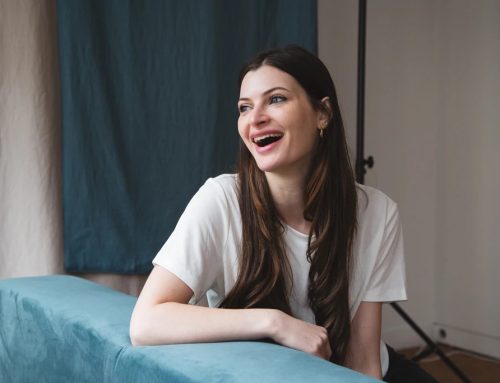
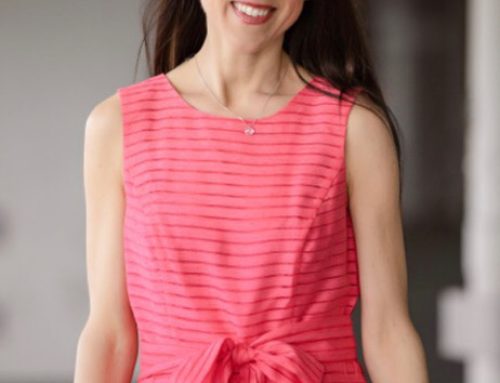
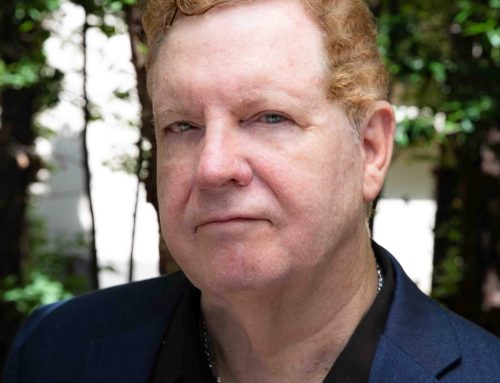
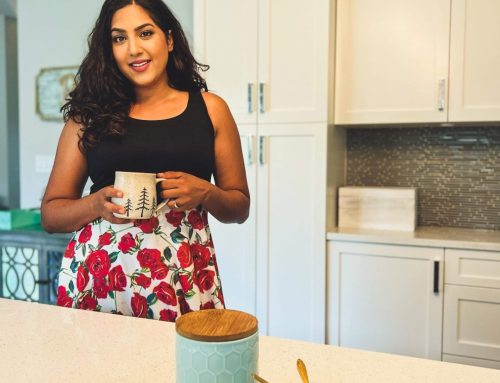
Leave A Comment